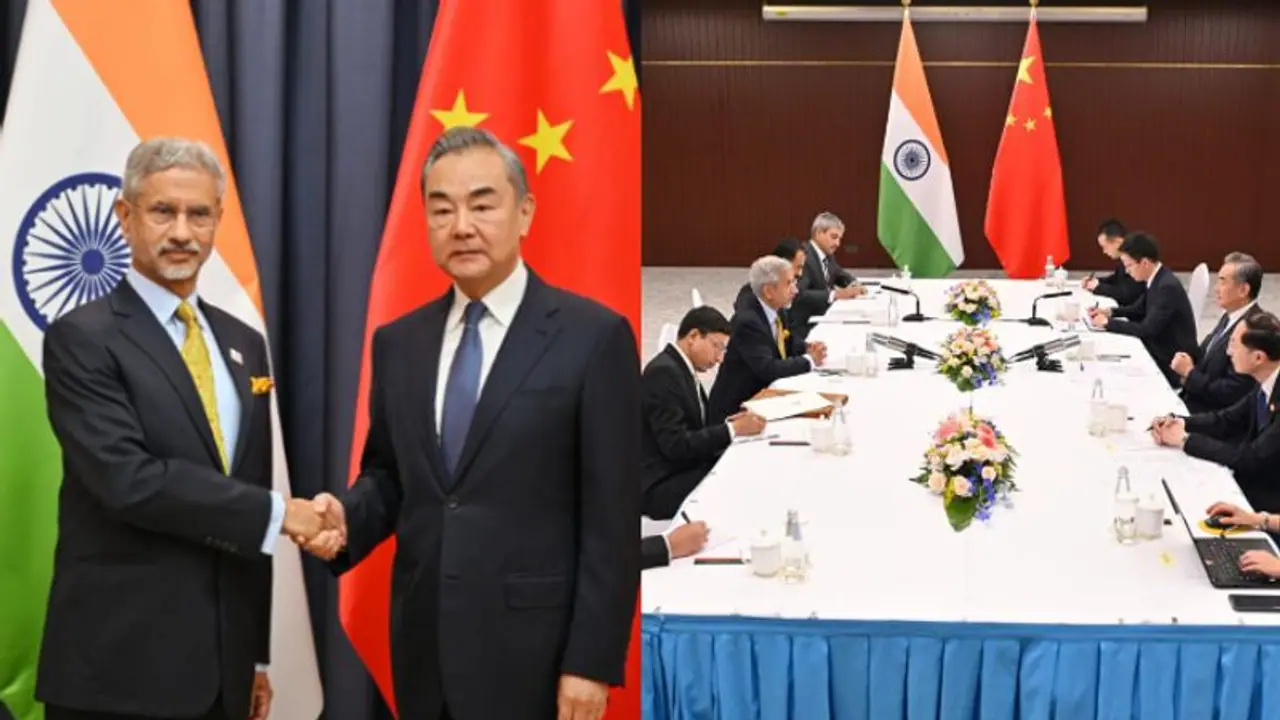External Affairs Minister S Jaishankar met with Chinese counterpart Wang Yi at the SCO Heads of State summit in Astana. They discussed resolving remaining issues along the LAC in Eastern Ladakh to stabilize and rebuild bilateral relations, agreeing to intensify efforts through diplomatic and military channels to restore border peace.
New Delhi: External affairs minister S Jaishankar and his Chinese counterpart Wang Yi on Thursday discussed for early resolution of remaining issues in the border areas along the Line of Actual Control (LAC) in eastern Ladakh. Former Chinese envoy to India and current vice minister in the foreign ministry, Sun Weidong, was also present in the meeting.

The two sides agreed to redouble the diplomatic and military channels to resolve all the pending border issues, which have been in place since April-May, 2020. The meeting between the two leaders was held on the sidelines of the Shanghai Cooperation Organisation (SCO) in Kazakhstan's Astana.
In a post on X (formerly Twitter), Jaishankar said: “Met with CPC (Communist Party of China) Politburo member and FM Wang Yi in Astana this morning. Discussed early resolution of remaining issues in border areas. Agreed to redouble efforts through diplomatic and military channels to that end.”
“Respecting the LAC and ensuring peace and tranquility in the border areas is essential. The three mutuals - mutual respect, mutual sensitivity and mutual interest - will guide our bilateral ties,” he said.
It must be noted that this is his first meeting with his Chinese counterpart since the government formation in Delhi, in June. The two ministers had met briefly in February in Germany on the sidelines of the Munich Security Conference. However, there was no official word on the gist of their discussion from both sides.
Before that, they also met in July 2023 in the Indonesian capital Jakarta at the ASEAN Regional Forum.
Since April-May 2020, the relations between two Asian giants have remained frozen after China’s People's Liberation Army (PLA) deployed troops in eastern Ladakh, which subsequently led to a deadly clash in the Galwan Valley on June 15, 2020.
So far, the top commanders of both armies have held 21 rounds of talks to resolve the border standoff issues. Till date, disengagement from four points – Galwan, Pangong Tso, Gogra (PP-17A) and Hot Springs (PP-15) has taken place. The de-escalation and de-induction process are yet to take place.
The standoff at the strategically important Depsang Plains and Demchok remains in place and there has been no agreement on this critical issue.
After the Galwan Valley violent clash, India deployed more than 68,000 additional troops along with nearly 90 tanks and over 300 infantry combat vehicles in Ladakh.
India has been pressing China's PLA to disengage from the Depsang plains and Demchok areas and said that a resolution to the border issues is necessary for restoration of bilateral ties.
